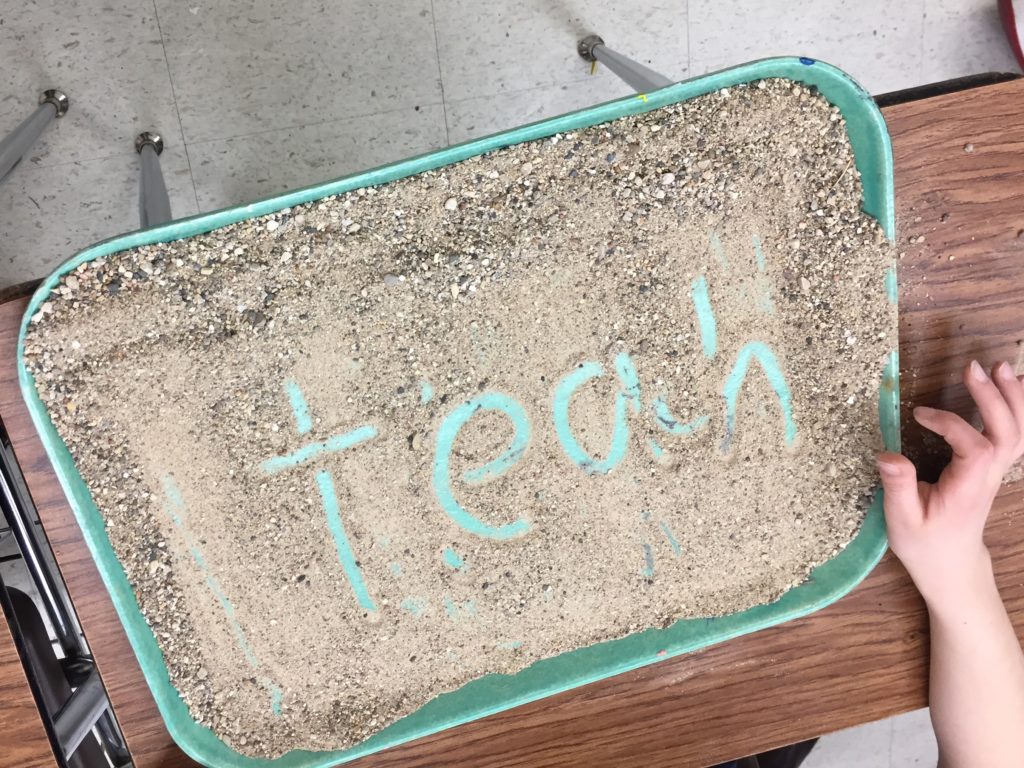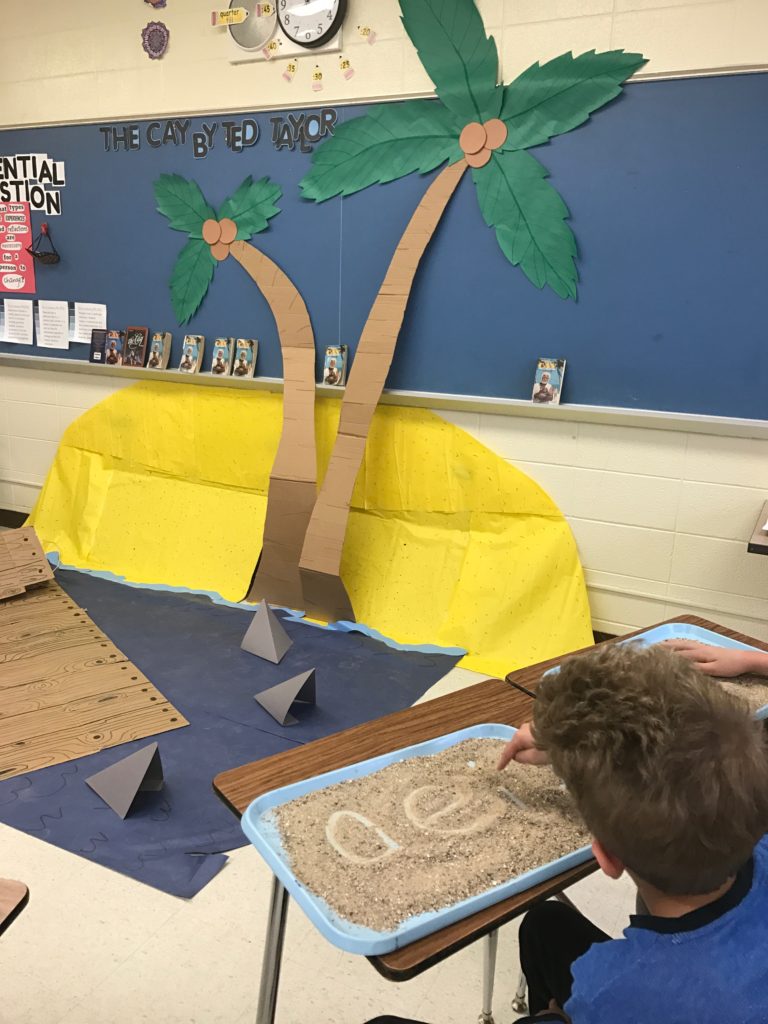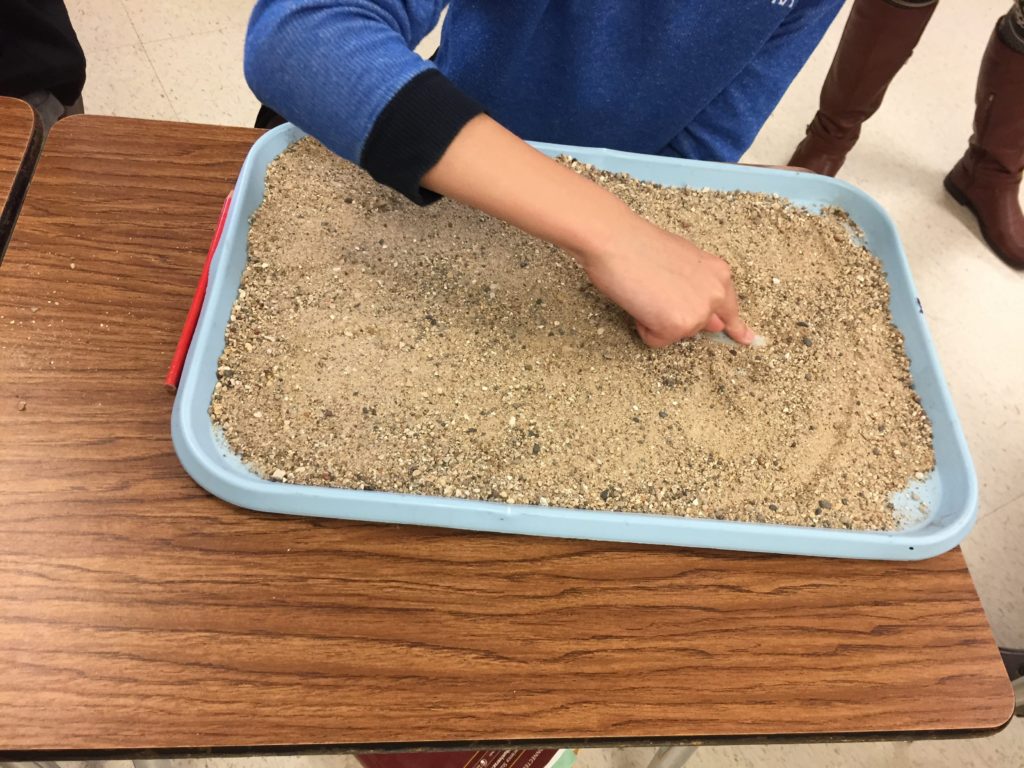Apr
2017
Spelling with Sand

Have you had an experience with multimodal writing/spelling? There are so many great ideas out there on Pinterest, from writing in shaving cream to making impressions in bags of paint. The beauty of this idea is that it is a) engaging for students b) gross motor skills (no worrying about holding a pencil) c) kinesthetic and multimodal (do, say, hear) d) easily replicated over and over until mastery e) memorable. Students can get in a lot of fun practice with language rules without the exhaustion and monotony of pencil/paper.

This practice is typically done in elementary schools, but I say NAY! Our middle school students deserve some fun as well! And since we were reading a book called The Cay in which (SPOILER) the 2 main characters are stranded on a deserted island and must write “HELP” in the sand to flag an airplane – well this gave me the idea that we could do our word work in the sand as well!
Our word study focus for this lesson was on the tch/ch rule. To begin with, we reviewed all of the short vowel sounds, making them in the sand and saying them repeatedly to brush up. A-apple, E-edge, I-itch, O-octopus, U-up.

After this practice, we learned the tch/ch rule – that the final ‘tch’ sound only occurs after a short vowel. We practiced with the word ‘batch’ – do you hear a short vowel? Yes I hear a-apple. That means that the /ch/ sound must be made by a -tch at the end.
We continued with several other words for practice:
- lunch
- teach
- fetch
- match
- screech
- itch
- notch
- splotch
- snitch
- notch
I didn’t so much care if they correctly spelled ‘teach’ with an ea and ‘screech’ with an ee, just that they recognized that the ending needed to be ‘ch’ instead of ‘tch.’
As you might expect, playing in the sand was a huge motivator, and at times distracting. In between words, I asked students to put their hands in the air. Once they were done spelling a word, I held up the cue card for them to cross check their spelling.
Overall, this lesson was a big hit. It was on theme, engaging, and appropriate for our word study sequence. The next lesson will be similar, on the ‘dge/ge’ ending (‘dge’ only occurs after a short vowel).
Would you try sand spelling with middle or high school students?
![]()